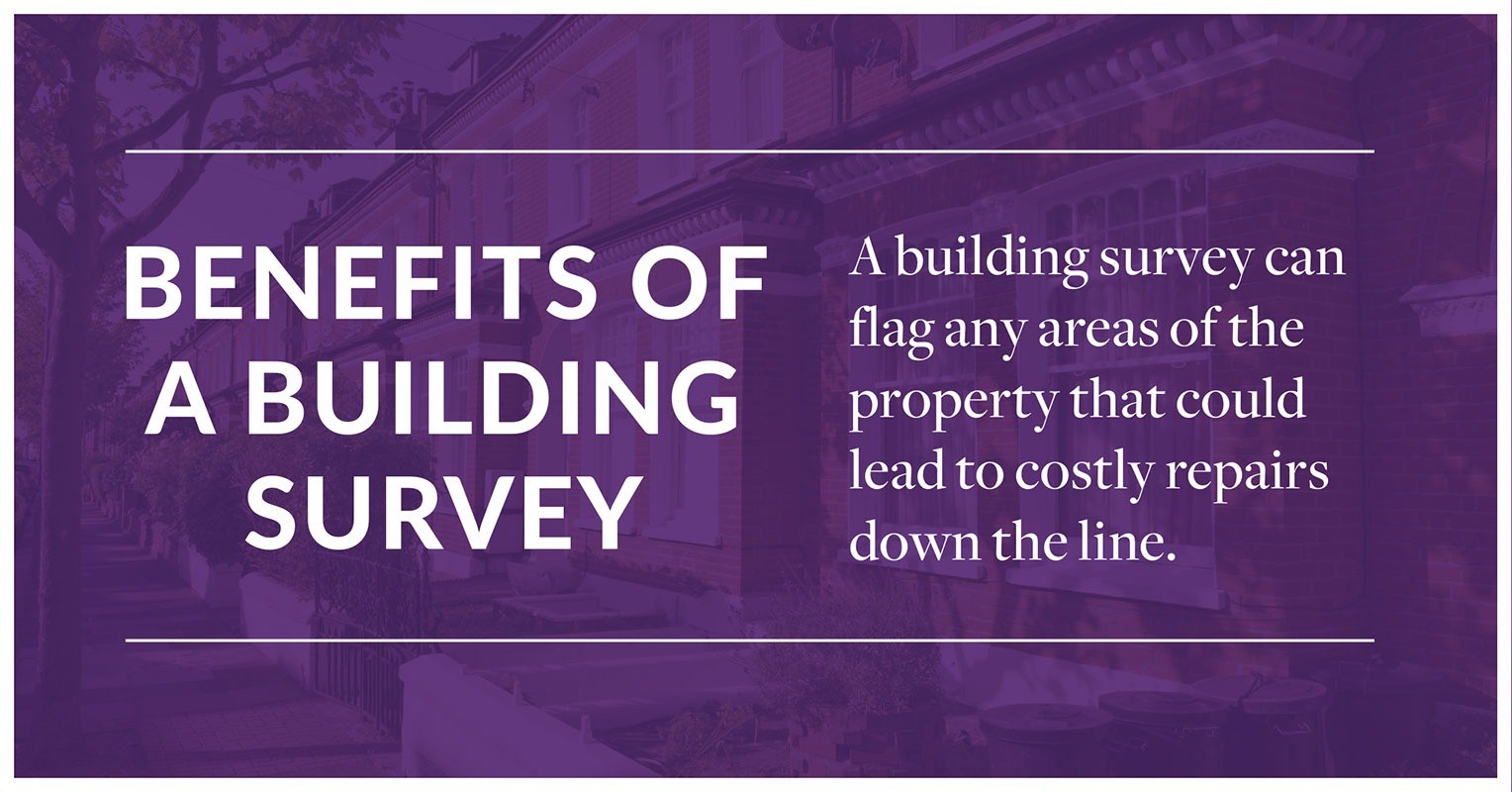
The cultural obsession with getting on the property ladder runs deep! Down through the generations, many people dream of the day they can unlock the door to their very own home.
Today, young people are just as eager to take the plunge into homeownership, despite rising property prices and financial hurdles. But is this desire to buy a home for the first time a good thing?
In this first-time homebuyer checklist, we’ll explore why homeownership is more than just a status symbol and provide practical tips for buying your first home with confidence.
We’ll also break down:
The British obsession with home ownership
Why young people want to climb the property ladder
Home ownership is a lifelong asset
The first-time buyer checklist you need to follow
The role a survey plays in ensuring peace of mind
A glossary of terms to help you navigate the process
The British obsession with home ownership
While renting may provide flexibility, homeownership is often seen as a way to build wealth, gain financial security, and secure a sense of permanence.
The British obsession with home ownership runs deep, rooted in a cultural belief that owning a home is a symbol of success, stability, and independence.
For decades, homeownership has been seen as a key milestone in adult life—a way to build wealth, secure a stable future, and gain control over one’s living environment.
This mindset was reinforced by government policies in the 20th century, such as the Right to Buy scheme, which encouraged individuals to buy their council homes.
Why young people want to climb the property ladder
Despite rising property prices and economic challenges, the desire to own a home remains strong, especially among younger generations who see getting on the property ladder as essential for long-term financial security and personal freedom.
A report from the UK Office for National Statistics (ONS) reveals that millennials and Generation Z still view homeownership as a primary financial goal.
Why? The reasons are clear…
Long-term investment
Purchasing a home is often one of the largest investments you’ll ever make, and owning property generally appreciates in value over time. This makes it a smart financial move for those seeking long-term returns.
Stability
Buying a home provides a sense of permanence and stability, something many renters cannot experience.
Control
Owning your own home gives you freedom over how you use and modify your space, from decorating to renovations, without needing landlord approval.
Building equity
With each mortgage payment, you build equity—this is the difference between the property’s market value and the outstanding mortgage balance. Unlike rent, where you pay for something you don't own, buying helps you build wealth.
For young people today, getting on the property ladder may be a challenge, but it’s still a goal worth striving for. It’s more than just owning a home—it’s about securing financial independence and having an asset that can support your future.
Home ownership is a lifelong asset
Owning a home is not just a dream – it’s a smart financial decision that offers long-term benefits.
We know that for first-time buyers, the road to homeownership can feel intimidating. We also know that, with the right knowledge, planning and a buying first home checklist, you’ll be able to navigate the process with ease.
Whether you want to build equity, secure financial independence, or simply having a place to call your own, home ownership continues to be one of the most significant and valuable milestones in life.
The homebuying process:
Buying for the first time? Here's our 10-step first-time home buyer checklist
Buying your first home can be complex, but we’ve broken the process down into 10 manageable steps to make it more approachable.
1. Set a budget
The first step to responsible home ownership is determining how much you can afford.
Your main initial outlay is always going to be your deposit, typically 5-20% of the property’s value. Then it’s also essential to factor in additional costs like legal fees, surveys, stamp duty, and moving costs.
It's crucial to get a realistic idea of what you can spend - and will help you secure a Mortgage in Principle.
2. Get a mortgage in principle
A Mortgage in Principle is an agreement from a lender that indicates how much they are willing to lend based on your financial situation. This not only gives you a better idea of your purchasing power, but also demonstrates to sellers that you’re a serious buyer.
3. Search for your first home
Once you know your budget, start looking for your dream home! Decide on your must-haves (location, number of bedrooms, garden, etc.), and try not to get swayed by superficial features.
Stick to your wish list and search for homes that meet your criteria. Websites like Rightmove and Zoopla can help you browse available properties.
4. Arrange viewings
Scrolling through homes online is one thing. Visiting them in person is a whole different experience and essential to the decision-making process. You just know when a property is – or isn’t – for you. Book viewings to visit homes that both catch your eye AND tick all your boxes.
Our best viewing tips? Take note of both cosmetic and structural details. Ask questions about the property’s history, repairs, and any potential issues.
5. Make an offer
If you’ve found a home you love, it’s time to make an offer. Offers can be negotiated, so don’t be afraid to start a bit below the asking price.
6. Get a survey
This step is crucial. A home survey will help you uncover any hidden issues that may not be visible during viewings. The survey provides a detailed report on the condition of the property and flags any potential problems that could cost you money down the line. This ensures peace of mind for buying your first home and helps prevent unexpected expenses in the future.
If you’re not sure what kind of survey you need, just ask!
7. Hire a solicitor or conveyancer
A solicitor or conveyancer handles the legal aspects of buying for the first time. They will manage the contract exchange, ensure the property’s title is clear, and handle the transfer of ownership.
8. Finalise your mortgage
Once your offer is accepted, contact your lender to finalise your mortgage. They will conduct a property valuation to confirm the home is worth the agreed price.
9. Exchange contracts
After both parties have signed contracts, the sale becomes legally binding. At this point, you will pay your deposit.
10. Complete the purchase
Sold! Completion happens when the remaining funds are transferred to the seller, and you receive the keys to your new home.
Congratulations – you’ve successfully purchased your first home!

The key role of a survey? To give you peace of mind
One of the most important, yet sometimes overlooked, aspects of buying a first-time home is the property survey. A home survey provides a detailed assessment of the property’s condition and helps ensure that you’re making a sound investment.
When purchasing your first home, you might be tempted to skip the survey to save money. However, this could lead to costly mistakes. A survey can reveal structural issues, dampness, or other defects that are not visible during an initial viewing. Catching these problems early means you can renegotiate the price or ask the seller to fix them before you complete the purchase.
There are different types of surveys, depending on the level of detail you need:
Condition Report
The most basic survey, providing an overview of the property’s condition.
Homebuyers Report
A more detailed report that highlights major issues like damp, subsidence, and other structural problems.
Building Survey
The most comprehensive type of survey, recommended for older or more complex properties.
In the long term, investing in a professional survey when buying for the first time can save you thousands and give you the confidence to proceed with your purchase.

Glossary of home buying terms
Navigating the world of real estate can feel like learning a new language. Here’s a quick glossary of key terms that will help you better understand the home buying process:
Conveyancer: A legal professional who handles the transfer of property ownership from the seller to the buyer.
Deposit: The amount you pay upfront toward the purchase price of the property, typically between 5-20% of the property’s value.
Equity: The difference between the property’s market value and the amount you owe on your mortgage.
Mortgage: A loan from a bank or building society used to buy property. The property acts as collateral for the loan.
Mortgage in Principle: A lender’s estimate of what they would be willing to lend you based on an initial financial assessment.
Stamp Duty: A tax paid on property purchases above a certain value. The rate varies depending on the property's price and location.
Survey: A detailed inspection of a property’s condition, highlighting any defects or repairs needed.
Home ownership is a lifelong asset
Owning a home is not just a dream—it’s a smart financial decision that offers long-term benefits.
We know that for first-time buyers, the road to homeownership can feel intimidating. We also know that, with the right knowledge, planning and a buying first home checklist, you’ll be able to navigate the process with ease.
Whether you want to build equity, secure financial independence, or simply having a place to call your own, home ownership continues to be one of the most significant and valuable milestones in life.
Whether you’re buying your first home, investing in real estate, or managing a property portfolio, Joe and our award-winning team provide the expertise and peace of mind that you need in today’s competitive property market.
Get in touch to ask us anything property related!
You can also call on 020 8642 2999 or send email us at surveryor@ardnoldandbaldwin.co.uk


